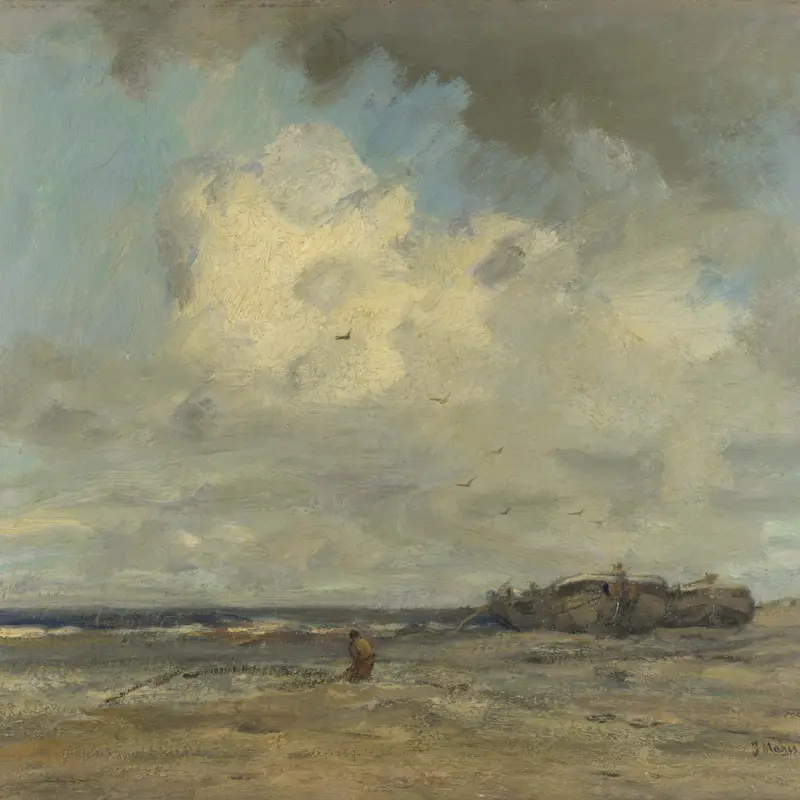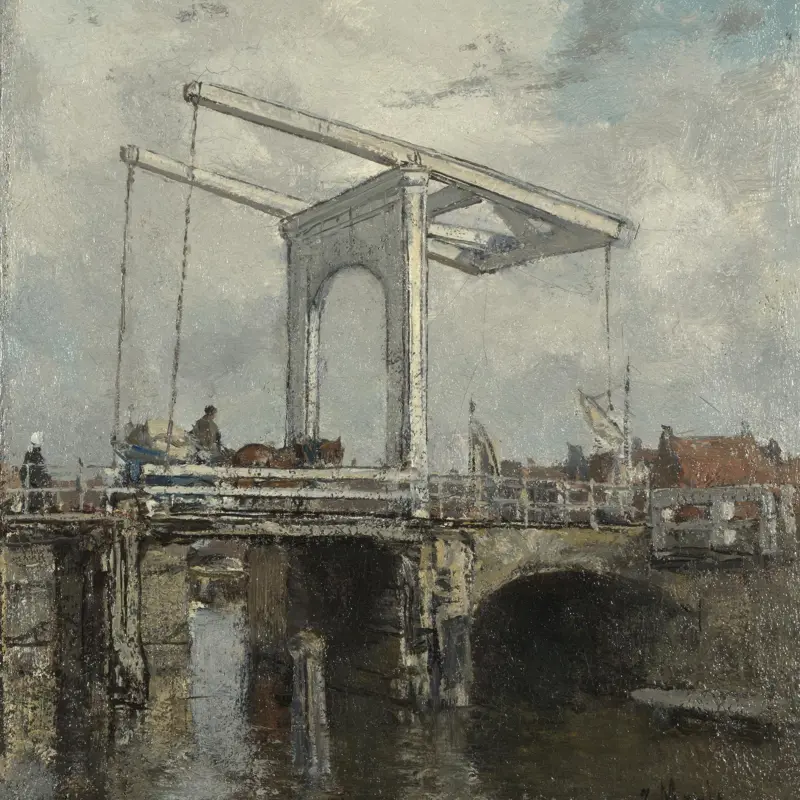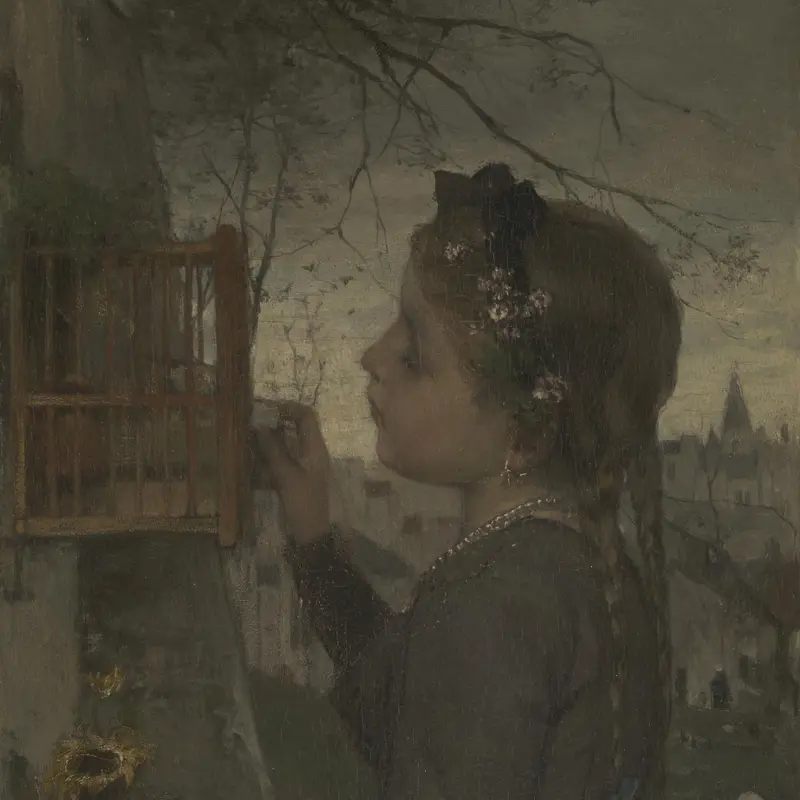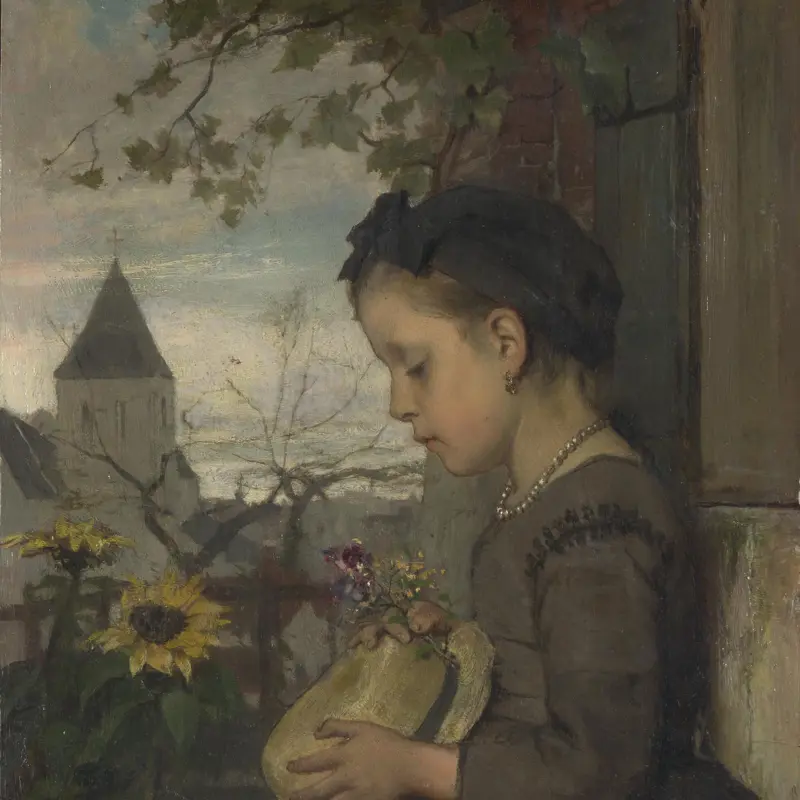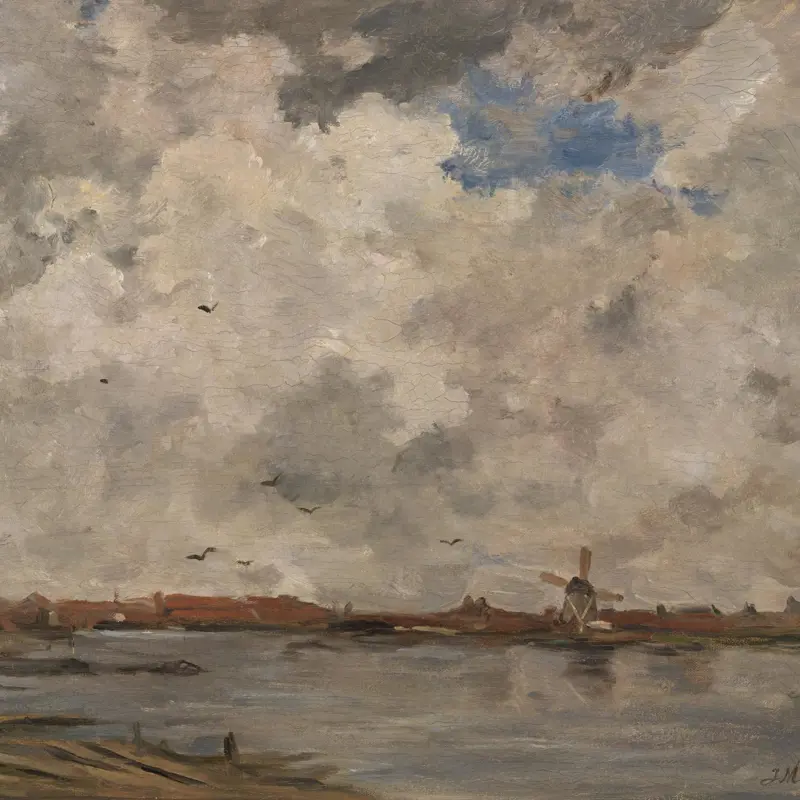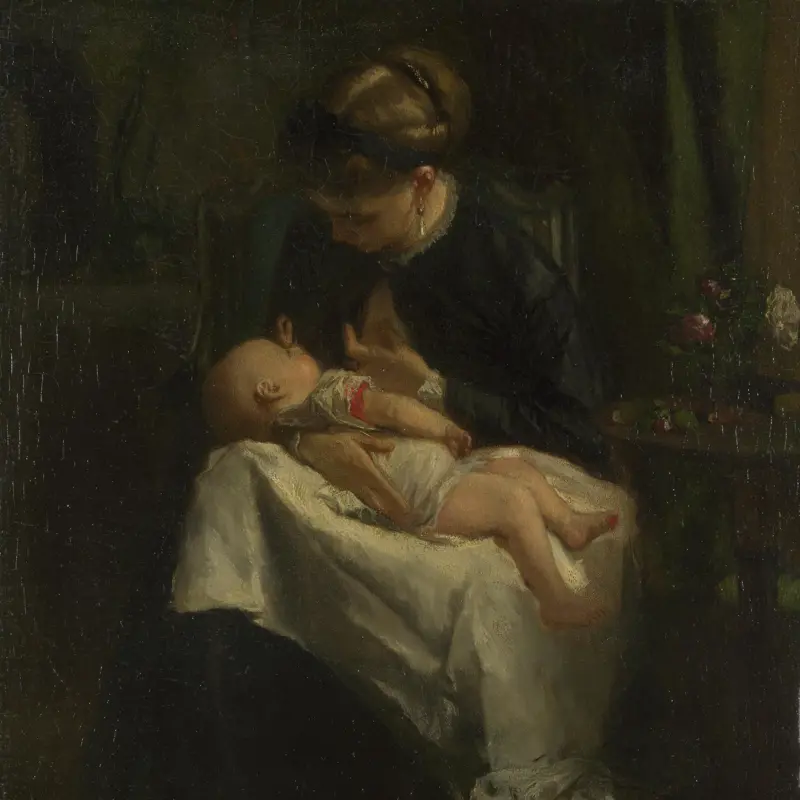Jacob Maris, 'Three Windmills', 1880
About the work
Overview
Born in The Hague, Jacob Maris trained at the city’s Drawing Academy and at the Academy in Antwerp. His interest in specifically Dutch landscape perhaps began on his first visit in 1859 to the artists’ colony at the village of Oosterbeek. After travelling in northern Europe, Jacob moved to Paris in 1865, where he encountered work by Corot and by the Barbizon group of landscape painters, who became the prototype for the Oosterbeek colony (itself sometimes referred to as the Barbizon of the North). He returned to the Netherlands in 1871, where he became a leading figure of the Hague School of painters.
This relatively small, dark painting shows Jacob’s preference for typically Dutch subjects, which include the windmills, still river or canal and overcast sky we see here, although this picture may not necessarily be of an actual place. By the time he painted it, Jacob had moved away from the smooth finish of his earlier work and had developed a looser style using thick paint and broad visible brushstrokes.
Key facts
Details
- Full title
- Three Windmills
- Artist
- Jacob Maris
- Artist dates
- 1837 - 1899
- Date made
- 1880
- Medium and support
- Oil on canvas
- Dimensions
- 33.7 × 41.3 cm
- Inscription summary
- Signed; Dated
- Acquisition credit
- Presented by C. Frank Stoop to the Tate Gallery, 1928; transferred, 1956
- Inventory number
- NG4399
- Location
- Not on display
- Collection
- Main Collection
Provenance
Additional information
Text extracted from the ‘Provenance’ section of the catalogue entry in Neil MacLaren, revised and expanded by Christopher Brown, ‘National Gallery Catalogues: The Dutch School: 1600–1900’, London 1991; for further information, see the full catalogue entry.
Bibliography
-
1960Maclaren, Neil, National Gallery Catalogues: The Dutch School, 2 vols, London 1960
-
1991Maclaren, Neil, revised by Christopher Brown, National Gallery Catalogues: The Dutch School, 1600-1900, 2nd edn (revised and expanded), 2 vols, London 1991
-
2001
C. Baker and T. Henry, The National Gallery: Complete Illustrated Catalogue, London 2001
About this record
If you know more about this work or have spotted an error, please contact us. Please note that exhibition histories are listed from 2009 onwards. Bibliographies may not be complete; more comprehensive information is available in the National Gallery Library.

